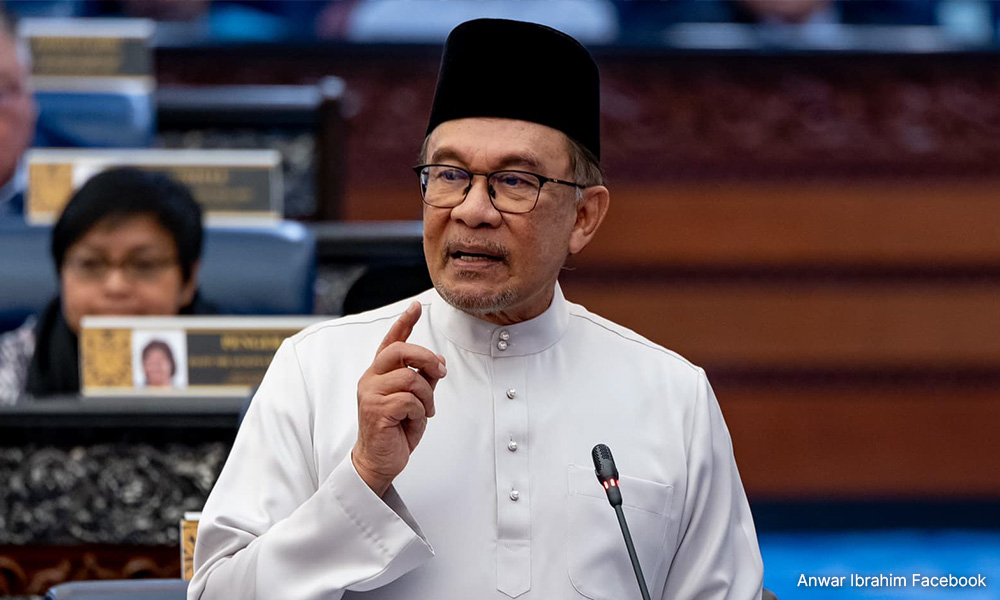
R Nadeswaran
Published: Oct 22, 2024 11:02 AM
COMMENT | A month after the coalition (now Madani) government took office, all political appointees who were chairpersons and board members in government-linked firms and statutory bodies were sacked.
Their termination letters, signed by then-chief secretary to the government Mohd Zuki Ali, stated that the cabinet had made this decision.
While some sceptics claimed “a new broom sweeps clean”, thousands of Malaysians, including this writer who had investigated the Port Klang Free Zone scandal, applauded the decision.
The primary cause of the RM12.4 billion loss was the dereliction of statutory duties by some directors, who rubber-stamped approvals for non-existent projects and payments when presented at board meetings.
I then wrote: “The appointment of competent and qualified people to the helm will help restore the prestige and stature of these bodies, which have often been accused of using them as their personal fiefdom.
“Their appointments must be decided by an independent and competent body. Candidates must be selected irrespective of colour or creed, and KPIs must be set.”
Disappointment
The overwhelming optimism was short-lived. A week later, an about-turn reflected the political manoeuvring to meet the demands of component parties.
It was not precisely horse-trading, but one party exerted itself and got the lion’s share. The other parties, including one that had been vocal about political appointments in the lead-up to the elections, chose to play dumb, deaf, and blind.
Published: Oct 22, 2024 11:02 AM
COMMENT | A month after the coalition (now Madani) government took office, all political appointees who were chairpersons and board members in government-linked firms and statutory bodies were sacked.
Their termination letters, signed by then-chief secretary to the government Mohd Zuki Ali, stated that the cabinet had made this decision.
While some sceptics claimed “a new broom sweeps clean”, thousands of Malaysians, including this writer who had investigated the Port Klang Free Zone scandal, applauded the decision.
The primary cause of the RM12.4 billion loss was the dereliction of statutory duties by some directors, who rubber-stamped approvals for non-existent projects and payments when presented at board meetings.
I then wrote: “The appointment of competent and qualified people to the helm will help restore the prestige and stature of these bodies, which have often been accused of using them as their personal fiefdom.
“Their appointments must be decided by an independent and competent body. Candidates must be selected irrespective of colour or creed, and KPIs must be set.”
Disappointment
The overwhelming optimism was short-lived. A week later, an about-turn reflected the political manoeuvring to meet the demands of component parties.
It was not precisely horse-trading, but one party exerted itself and got the lion’s share. The other parties, including one that had been vocal about political appointments in the lead-up to the elections, chose to play dumb, deaf, and blind.

After the weekly cabinet meeting, Prime Minister Anwar Ibrahim said: “I never said that individuals involved in politics could not be part of (GLC) management.
“However, they should be bound by certain conditions and have the required qualifications in the relevant fields.
“There is a possibility that several political figures or MPs will be assigned (to GLCs), but we will set the guidelines on the required level of an individual’s professional ability, his past performance, and compliance with the rules of governance.”
Since then, there have been 95 appointments and claims that this figure pales compared to former prime minister Najib Abdul Razak, who had the highest number of political appointments, at 301.
Data published by the Institute for Democracy and Economic Affairs (Ideas) ranked prime ministers on the Pantau Kuasa website based on the number of political appointments made.
Its ranking from highest to lowest was Najib (301), Ismail Sabri Yaakob (273), Muhyiddin Yassin (186), Anwar (95), and Dr Mahathir Mohamad’s second tenure (86).

More than half of the new appointments were said to have come from Umno (61), followed by Bersatu (19), Parti Bangsa Malaysia (15), PAS (seven), and MCA (five).
More nepotism?
When Keadilan women’s wing leader Sangeeta Jeyakumar was appointed to the board of the Port Klang Authority in January, there were murmurs of discontent. A few questioned her credentials. If one component is rewarded, what about the other?
Social media exploded last week with claims of nepotism, among other things, when the disgraced Najib’s daughter, Nooryana Najwa, was appointed to the Malaysia External Trade Development Corporation (Matrade) board.
On X, Jehan Abu Bakar noted that her appointment casts clouds over Malaysia’s meritocracy.
“People, of course, expect positions of power and responsibility to be awarded based on qualifications and experience, not familial connections. This will then lead to a widespread distrust in public institutions.”
Others queried her qualifications and work history for joining the board “aside from being Najib’s daughter”.

Former prime minister Najib Abdul Razak and his daughter Nooryana Najwa
On LinkedIn, she states that she is a senior analyst with Cradle Fund Sdn Bhd and also lists her experience in TPG Capital, a job arranged by the notorious Tim Leissner of Goldman Sachs/1MDB fame.
If Anwar’s three criteria for such appointments - the level of an individual’s professional ability, her past performance, and compliance with the rules of governance - were used, Nooryana would have failed.
I don’t know her level of professional ability or her past performance, but when it comes to compliance with the rules of governance, she would certainly get an “F”.
She made various allegations against various parties and refused to accept the guilty verdict reached by the judicial process.
Her interviews and speeches defended her kleptocrat father and made accusations against the judiciary. Besides, she also had a run-in with the taxman.
So, I must ask the Madani government: How is one chosen to be a director of a government body? Is there a process, or are you appointed because you have the right connections or have strong cables? Are there any background checks or vetting processes?
If Anwar’s three criteria for such appointments - the level of an individual’s professional ability, her past performance, and compliance with the rules of governance - were used, Nooryana would have failed.
I don’t know her level of professional ability or her past performance, but when it comes to compliance with the rules of governance, she would certainly get an “F”.
She made various allegations against various parties and refused to accept the guilty verdict reached by the judicial process.
Her interviews and speeches defended her kleptocrat father and made accusations against the judiciary. Besides, she also had a run-in with the taxman.
So, I must ask the Madani government: How is one chosen to be a director of a government body? Is there a process, or are you appointed because you have the right connections or have strong cables? Are there any background checks or vetting processes?

The other members of the Matrade board are either industry captains or senior civil servants. How does she fit in? Why Nooryana? If Umno decided to “reward” Puteri Umno, wouldn’t other candidates have better CVs?
Umno remains the big brother
Many thought that with Umno reduced to 30 seats in Parliament, there would be some form of humility, but everything has stayed the same.
The arrogance and authoritativeness have not changed; the “we grab what we want” mantra still works, and others just dance to its tune.
It continues to dominate the government, getting more seats than its once-rival DAP, although the latter has more seats in Dewan Rakyat.
We have yet to feel and see the promised “Reformasi”, but we have seen and continue to see Umno’s dominance, which was sent off packing two years ago.
R NADESWARAN is a veteran journalist who writes on bread-and-butter issues. Comments: citizen.nades22@gmail.com

A pacifying trade-off within the ketuanan lair!
ReplyDelete